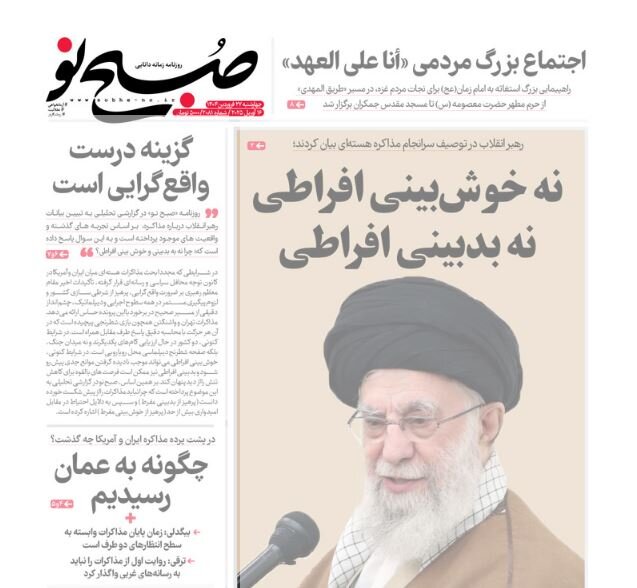Tehran – In the analysis, SOBH-E-NO worked on the removal of Europe from negotiations, writing: From the perspective of many experts and analysts on international issues, removing Europe from the negotiation process between Iran and the US means not only reducing the complexity of diplomatic relations, but also brings strategic benefits to both sides of Iran, particularly.
One of the most important benefits is freedom from time-consuming, fruitless European processes. Analysts believe that Europe is not neutral at many points and has actually acted in cooperation with the US in its position. In recent years, instead of acting as a facilitator, Europe has acted more as a pressure tool. From issuing political statements to impose symbolic sanctions. Without European involvement, Iran has more space to pursue its diplomatic initiatives. Some analysts view the exclusion of Europe as a strategic move to break the false Western power structure. For years, Europe tried to control the situation by pretending to be multilateral and maintain a diplomatic image, but in reality it had no effective role. If you remove them, it opens the field for Flander’s dialogue.
Siasat-e-Rooz: Negotiation isn’t everything
Siasat-e-Rooz said it is essential not to link the country’s economy to negotiations, writing: It is a big mistake to link the country’s economic issues (during the Ruhani administration) to negotiations because there was a big mistake because, in the case of negotiation processes and differences of opinion, the first sector affected the people, and thus affected the people. The other side of the negotiations also made this issue a reality, making it a tool that puts more pressure on Iran. The negotiations are intended to lift the illegal inhuman sanctions imposed by the United States on Iran, and it is unlikely that the country will play a fundamental role in Iran’s progress and development, even if there is the possibility of peaceful dismantling of Iran’s nuclear technology and the dismantling of military weapons, particularly missiles. If negotiations don’t work out on Saturday (April 19) or if there are no positive signs, it will affect people’s lives. To prevent this, economic plans must be engraved to control the situation.
Shargh: Opportunities should be used in the best way
In an editorial, Sharg recently described it as a historic part of the country’s foreign policy. It said: On the first day of this week (April 12th), top Iranian and US diplomats held a speech. The high significance of this contact is that it was done with representatives of the radical Republican government in the United States. Given the development and experience of the past decades, and the positive contacts between Iran and US representatives on Saturday (April 12), it should be suggested that rather than focusing on nuclear programmes and sanctions related to the nuclear programme, the two countries should have the opportunity to raise all concerns for the complete lifting of all US sanistations. Other issues include at best missile programs (in Iran). It has the ability to defend legitimate missile programs, taking into account military programs from other regions. Local issues are another issue, and important parts of this have been forgotten over the past two years.
Kayhan: We need to preserve the dignity and interests of our people
Negotiations with the US have been raised by several groups with the slogan of lifting sanctions and improving livelihoods, but experience over the past few years shows that these consultations are always a tool to impose American hegemonic will and obtain concessions from Iran. The failure of Washington’s maximum pressure policy, withdrawal from military threats, and ultimately return to the negotiation table have once again proven that strategies that rely on aggressive resistance and domestic capabilities can help more than “trust political smiles.” Negotiations with the United States were held with the slogan of lifting sanctions and securing the interests of the nation, but were a tool to pressure, influence and impose the will of Iran and the arrogant institutions of hegemony in the West. The historical experience of the Iranian state proves that trust in the United States not only did not benefit the country, but also paved the way for enemy pressure and even more boldness. Relying on internal capabilities, local power and general support, Islamic Iran has proven that it does not require Washington’s deceptive smile, and negotiations only make sense when the dignity and interests of the nation are preserved.

